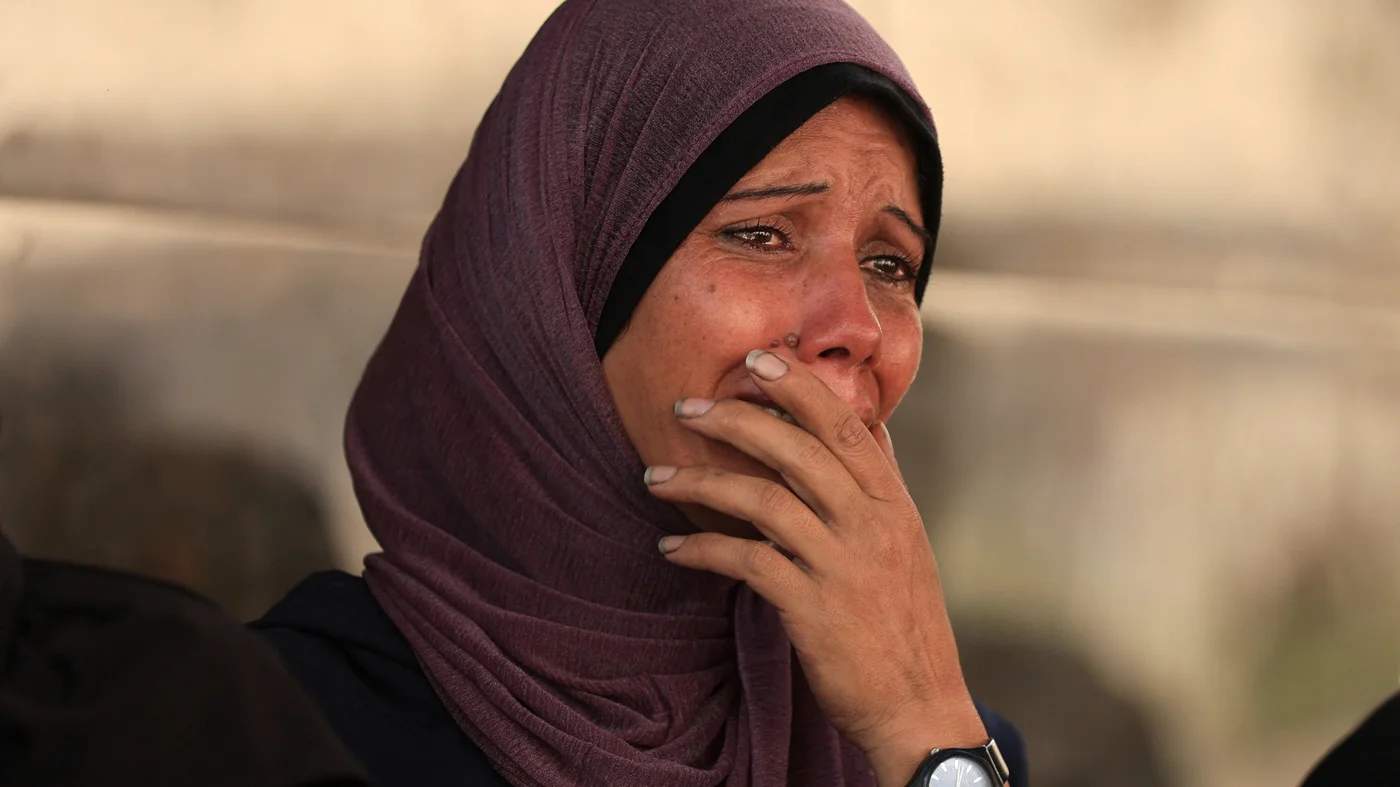Gaza City communication blackout isolates 800,000 Palestinians

As a result of Israel's ongoing deadly bombardment of Gaza City's infrastructure, nearly one million Palestinians have been left in a total internet and telecommunications blackout.
While network in a few parts of the city have been restored, such as in the Baptist Hospital area, internet access remains shut down across most of Gaza City.
The shutdown of communications in the city began on Wednesday, coinciding with the advance of Israeli army vehicles into the city's northwestern neighbourhoods
The situation is extremely tense, with widespread fears over what will unfold in the coming days.
Palestinians on the ground told Middle East Eye that they are going through the worst stages of genocide in Gaza.
The newest Israeli offensive in Gaza City and northern parts of the blockaded strip - spanning a month - is part of a wider plan to fully occupy the territory.
Since 11 August when the campaign began, 3,542 people have been killed across the besieged enclave, with over 44 percent in Israeli-designated "safe zones," to where much of the north's population is being forcibly expelled, the government media office reported on Thursday.
Due to the danger and overcrowding in these so-called humanitarian zones in the south, many residents living north of the Gaza Strip are refusing to be displaced.
The UN’s top investigative body on Palestine and Israel ruled on Tuesday that Israel is guilty of the crime of genocide in Gaza, in the most authoritative pronouncement to date.
Over 65,141 Palestinians have been killed since Israel launched its genocidal campaign on the besieged enclave more than 23 months ago.
A warning on X published by Euro-Med Human Rights Monitor (Euromed) said that "relentless bombardments, collapsing high-rises, and destroyed internet infrastructure have left Gaza City in total blackout".
With Israel effectively cutting off communication in most of the city, Euromed estimates the blackout isolates around 800,000 Palestinians, saying it is "silencing their voices as Israel attacks escalate".
Although Israel launched a number of deadly massacres within the city, the Israeli-manufactured blackout ensured that there would be little to no media coverage.
Most journalists rely on the method of using an e-SIM to continue their reporting, which requires seeking higher ground to receive a signal - such as connecting from rooftops of towers and high-rise buildings.
However, with Israel's latest assault on multi-storey buildings with or without expulsion threats, in the current situation, it is frightening for journalists and civilians to utilise these areas.
Killer robots
Israel's deliberate targeting of telecommunication and internet infrastructure in the besieged enclave is not the first of its kind, with at least 12 cases of complete shutdowns reported since October 2023.
In June, Israel launched a significant attack on the last remaining main fiber optic route connecting Gaza, leaving the over two million population isolated from the outside world for days.
The military has regularly targeted other notable infrastructure, buildings and shelters necessary for the humanitarian livelihood of Gaza's population for the over 700 days.
Most recently, Gaza City and the northern part of the enclave have suffered immense assaults carried out by Israeli shelling and deadly robots.
According to Israeli media, the explosions are so powerful that some have been heard as far away as central Israel.
Palestinians say the blasts are “earth-shaking” and cause widespread terror and destruction in their wake.
At least 100 explosive robots were used in densely populated areas between 13 August and 3 September alone, according to the Gaza-based Government Media Office.
Euromed said at the beginning of September that around 300 residential units are being destroyed daily due to these explosions.